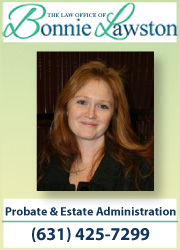 It’s pretty common procedure for a fiduciary to a trust to obtain a release, with the objective of waiving the fiduciary’s obligation to provide an accounting of the assets of the estate and trust. A recent opinion from the Surrogate Court in New York County casts some doubt on the potential validity of such releases.
It’s pretty common procedure for a fiduciary to a trust to obtain a release, with the objective of waiving the fiduciary’s obligation to provide an accounting of the assets of the estate and trust. A recent opinion from the Surrogate Court in New York County casts some doubt on the potential validity of such releases.
In Matter of Ingraham, NYLJ, June 16, 2017, at p. 28 (Sur. Ct., New York County), the court considered the validity of a receipt and release and ruled that it did not absolve the trustee from the legal responsibility to provide an accounting. In Ingraham, a successor trustee had filed a petition with the Surrogate Court asking that the former trustees submit an accounting. One trustee complied with the request, but the other trustee objected, citing both the language of the trust document, which she argued relieved her from any obligation to provide an accounting; and releases that had been signed and executed by the trust’s grantor and by the other trustee.
According to evidence entered during the proceeding, the document signed by the grantor released the trustee from “any and all claims related in any way to her role as trustee,” other than claims arising as a result of fraud or willful misconduct. The document also included a provision waiving the right to a formal accounting of the trust. The other trustee had executed a similar release.
The court, however, found that that trustee could not use the release to avoid the duty to provide an accounting, citing two specific reasons:
- The release specifically reserves the right to seek relief if there are allegations of willful misconduct or fraud
- The duty to provide an accounting is a fundamental aspect of any fiduciary relation, an essential part of a trustee’s duty
The court also concluded that, even if the released waived the grantor’s right to an accounting, it was not legally binding on the other trustee, successor trustees and trust beneficiaries. Furthermore, the court rejected the argument that the trust document waived the requirement that trustees provide an accounting, concluding that the trust document only waived the obligation to provide periodic accountings, not the requirement that there be a final accounting.
When you’re involved in an estate or trust administration dispute, it’s essential that you have knowledgeable, skilled and experienced legal representation. Estate and Probate Attorney Bonnie Lawston has protected the rights of individuals in trust and estate matters on Long Island for more than 20 years.
Contact Probate and Estate Administration Attorney Bonnie Lawston for all your Probate and Estate Administration matters.
